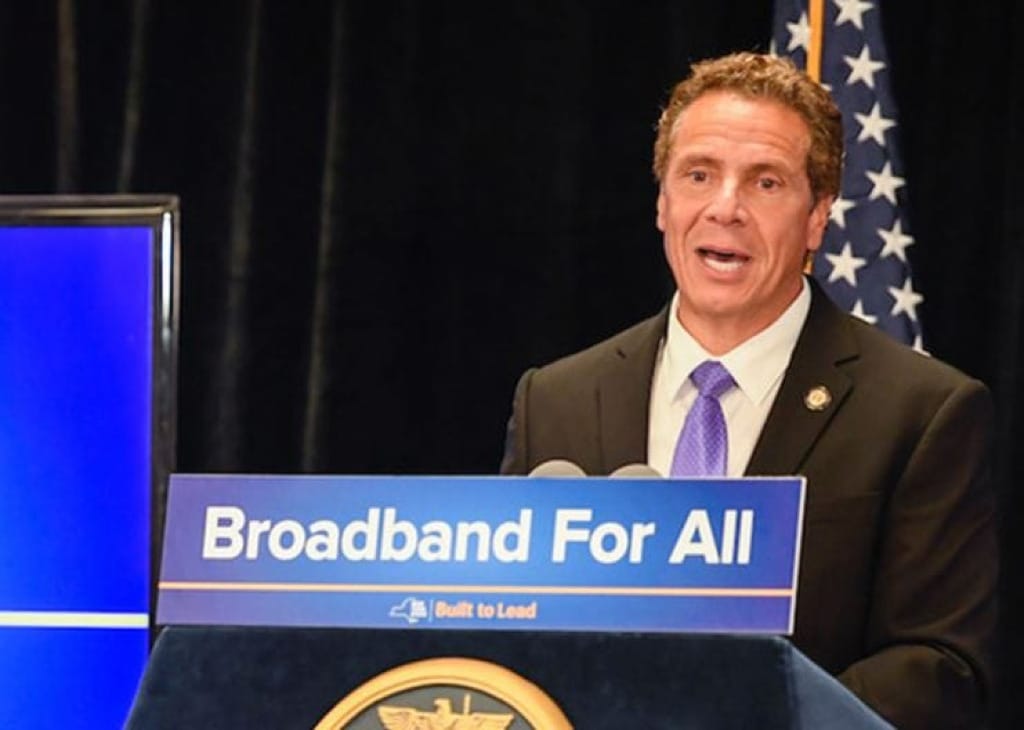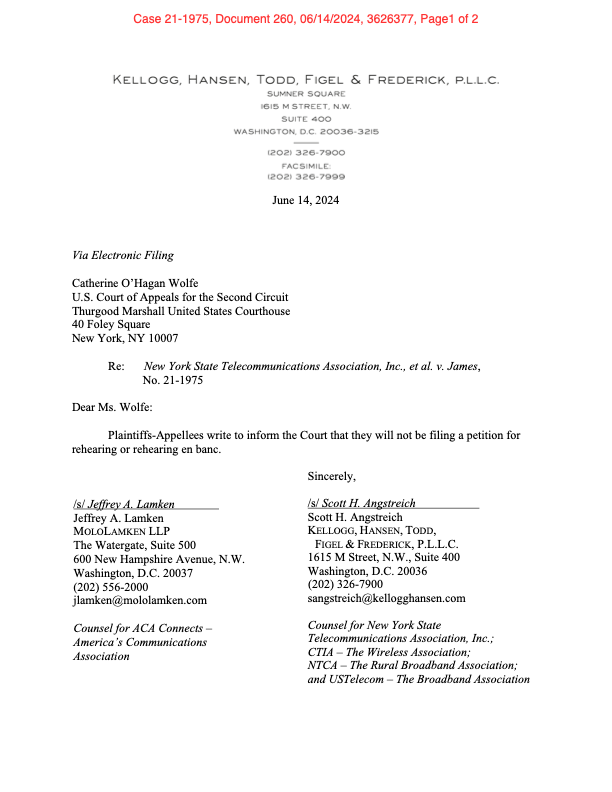ISPs Give Up Court Challenge to N.Y.’s Affordable Broadband Law
It's possible the ISPs will ask the FCC to preempt the New York law
Ted Hearn

WASHINGTON, June 14, 2024 – Trade associations for Internet access providers have decided to stop fighting in federal court a New York law requiring reduced-price Internet plans for low-income consumers.

Although the court battle appears over, Internet Service Providers involved in the case could try to seek relief from the Federal Communications Commission.
In a filing Friday, the ISP trade groups notified the U.S. Court of Appeals for the Second Circuit in Manhattan that they had decided not to pursue additional appeals intended to invalidate New York’s Affordable Broadband Act.
“Plaintiffs-Appellees write to inform the Court that they will not be filing a petition for rehearing or rehearing en banc,” lawyers for the trade groups said in the one-page filing.
The filing wasn’t a complete surprise because the ISPs in May notified the court of an agreement with Attorney General of New York Letitia James that would obviate the need for an appeal. Terms of the agreement have not been disclosed.
New York’s ABA was signed into law in 2021 by then-Gov. Andrew Cuomo (D).
The Second Circuit upheld the law on April 26, saying the state was not prevented by federal communications policy in effect at that time from mandating price-capped Internet plans.
But a day before the court ruled, the FCC adopted new Internet regulations – the Net Neutrality rules – that created a different framework from the one that the Second Circuit analyzed in the ABA case. The new rules go into effect on July 22 if ISPs fail to get them stayed by then.
The FCC’s Net Neutrality rules classified broadband ISPs as common carriers under Title II of the Communications Act, giving the agency a strong supervisory role, including the authority to block state action in conflict with the federal scheme.
FCC Commissioner Brendan Carr, a Republican, said the Net Neutrality rules preempted the ABA, making it unenforceable. But it’s unclear whether the ISPs will ask the Democratic-controlled FCC to void the ABA, mainly because the FCC warned in the Net Neutrality rules that "the mere existence of a state affordability program is not rate regulation.”
“It is hard to assess the significance of this action by itself,” said Andrew Schwartzman, Senior Counselor at the Benton Institute for Broadband & Society, referring to the ISPs’ Friday court filing. “For example, there may or may not be some understanding about whether the state will enforce the statute while the litigation over the FCC's Title II reclassification proceeds.”
In the Second Circuit case, Schwartzman represented public interest groups that supported the N.Y. law.
Under the New York law, all wireline, fixed wireless, and satellite broadband providers were required to offer qualifying low-income consumers a basic service plan of 25 Mbps for $15 per month, or 200 Mbps for $20 per month.
Fighting the law were ACA Connects – America’s Communications Association; the N.Y. State Telecommunications Association; CTIA – The Wireless Association; NTCA – The Rural Broadband Association; USTelecom – The Broadband Association; and the Satellite Broadcasting & Communications Association.









Member discussion